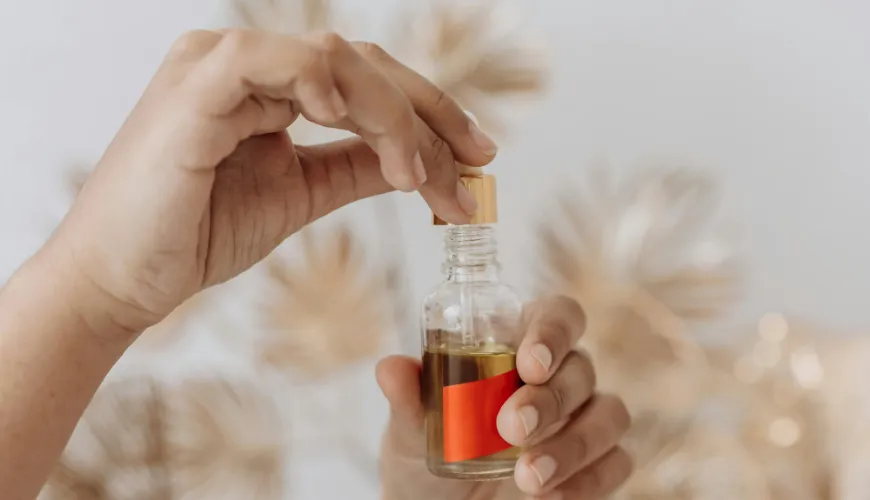
The Truth About Teeth Whitening with Hydrogen Peroxide

Hydrogen peroxide, chemically known as H₂O₂, is a commonly used substance in households and healthcare. In recent years, however, it has also become popular as a tooth whitening agent. What is true and what is myth? What are the benefits and risks of using hydrogen peroxide on teeth? Let's take a closer look.
Hydrogen peroxide is a colorless liquid with strong oxidizing properties. It is known for its disinfecting effects and is used for wound disinfection, as a bleach, and in some cases, as a tooth whitening agent. Many people ask: "Can something so simple and cheap really whiten teeth effectively?" The answer is not straightforward.
The whitening effect of hydrogen peroxide is based on its ability to break down organic molecules that cause tooth discoloration. When hydrogen peroxide comes into contact with teeth, it breaks down chromogenic molecules (those that cause stains) into smaller, less colored, or colorless particles. This process leads to the visual lightening of teeth.
Many people use hydrogen peroxide at home as a cheap alternative to professional whitening procedures. The common concentration of hydrogen peroxide for home use is around 3%, which is considered relatively safe for short-term use. It is often recommended to use the solution as a mouthwash, rinsing your mouth with hydrogen peroxide for a few minutes and then spitting it out.
There are also home whitening kits that contain higher concentrations of hydrogen peroxide (around 6-9%). These products promise faster and more visible results, but there is an increased risk of gum irritation and enamel damage.
Try our natural products
Professional Teeth Whitening
Dental clinics offer professional whitening procedures that often involve higher concentrations of hydrogen peroxide (up to 38%). These procedures are safer because they are performed under professional supervision. Professional whitening is usually faster and more effective than home methods, but also significantly more expensive.
Benefits of Using Hydrogen Peroxide
Hydrogen peroxide is proven to be an effective whitening agent that can significantly lighten teeth. This substance works by penetrating the enamel and breaking down pigment molecules that cause tooth discoloration. Due to its ability to break down stains and discoloration, hydrogen peroxide is often used in various dental whitening products. In addition to its effectiveness, hydrogen peroxide is also very accessible. It can be easily purchased at pharmacies and is relatively inexpensive compared to professional whitening procedures offered by dentists. This makes it an attractive option for those looking for an effective way to improve the appearance of their teeth without high costs.
Try our natural products
Another advantage of hydrogen peroxide is its flexibility of use. It can be used in various forms, allowing users to choose the application method that best suits them. For example, as a mouthwash that can easily be incorporated into daily oral hygiene, or as a gel applied directly to the teeth using special applicators. Another popular form is whitening strips, which are soaked in hydrogen peroxide and simply adhere to the teeth for a certain period. This variety of uses allows individuals to tailor the whitening procedure to their needs and lifestyle. Regardless of which form you choose, hydrogen peroxide provides reliable results and is an affordable option for tooth whitening.
Risks and Side Effects
Using hydrogen peroxide is not without risks. The most common side effects include gum irritation, tooth sensitivity, and enamel damage. Higher concentrations of hydrogen peroxide can cause gum irritation and inflammation, which can be unpleasant and lead to further oral health issues. Long-term use of this substance can also increase tooth sensitivity to temperature changes and sweet or acidic foods, which can be very bothersome in everyday eating. Another risk is enamel damage. Excessive and frequent use of hydrogen peroxide can lead to enamel erosion, which can weaken teeth and increase the risk of decay.
Try our natural products
Alternatives to Hydrogen Peroxide
If you are looking for safer alternatives for tooth whitening, here are some options worth considering. Activated charcoal is one of the popular methods some people use for tooth whitening. Although scientific evidence of its effectiveness is limited, many users report positive results.
Another alternative is a mixture of crushed strawberries and baking soda. This combination is a popular home whitening method, but caution is needed as it can be abrasive and may damage tooth enamel with frequent use. There are also professional whitening pastes available that contain lower concentrations of bleaching agents and are gentler on tooth enamel. These pastes can be a good choice for those who want to achieve a whiter smile without the risk of tooth damage.
Try our natural products
How to Properly Use Hydrogen Peroxide on Teeth?
If you decide to use hydrogen peroxide for tooth whitening, here are some tips on how to do it safely. Choose the right concentration, with 3% being the safest for home use. Do not use hydrogen peroxide too often, ideally limit usage to once a week to prevent enamel damage. Protect your gums by minimizing contact with hydrogen peroxide to avoid irritation.
Is hydrogen peroxide for teeth a myth or a miracle? The answer lies somewhere in between. Hydrogen peroxide can be an effective tool for tooth whitening if used correctly and with caution. However, its use is not without risks, and for some people, it may be better to seek alternative tooth whitening methods. It's always important to weigh both the benefits and potential risks and consult your plans with a professional.
Remember, healthy teeth and a beautiful smile result not only from proper hygiene but also from an overall healthy lifestyle. So, when considering tooth whitening, ask yourself: "Is it really worth it?"

















